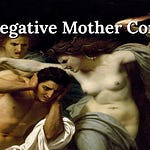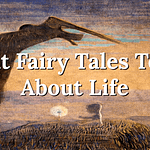“There is some wisdom in taking a gloomy view, in looking upon the world as a kind of Hell, and in confining one’s efforts to securing a little room that shall not be exposed to the fire.”
Arthur Schopenhauer, Counsels and Maxims
At the age of 21, the philosopher Friedrich Nietzsche was browsing a bookstore when he stumbled upon Arthur Schopenhauer’s philosophical treatise The World as Will and Representation. The chance discovery of this book would radically change Nietzsche’s life, or as he wrote:
“I don’t know what demon whispered to me: ‘Take this book home.’… Back at home, I threw myself into the corner of a sofa with my new treasure, and began to let that dynamic, dismal genius work on me.”
Nietzsche, Ecce Homo
Nietzsche was not the only great thinker influenced by Schopenhauer at an early age. In his late teenage years, Carl Jung searched for thinkers who could satisfy his intense thirst for knowledge, and in his autobiography Memories, Dreams, and Reflections he wrote that:
“…the great find resulting from my researches was Schopenhauer. He was the first to speak of the suffering of the world, which visibly and glaringly surrounds us, and of confusion, passion, evil…Here at last was a philosopher who had the courage to see that all was not for the best in the fundaments of the universe. He spoke neither of the all-good and all-wise providence of a Creator, nor of the harmony of the cosmos, but stated bluntly that a fundamental flaw underlay the sorrowful course of human history and the cruelty of nature…”
Carl Jung, Memories, Dreams, Reflections
In this video we explore Schopenhauer’s pessimistic view of the world, and his thoughts on how to respond to the sufferings and evils of life.
“Subject to the limitation of human knowledge, my philosophy is the real solution of the enigma of the world.”
Arthur Schopenhauer, The World as Will and Representation
Schopenhauer’s philosophical goal was a lofty one. In his words, he wanted “to lay bare the true nature of the world” by obtaining knowledge of the ultimate and foundational reality underlying all phenomena. This transcendental reality, which is posited to exist beyond space and time and eternally underwrite all that exists, is often referred to by philosophers as the “ground of being”.
The reason Schopenhauer wanted to uncover the true nature of reality is because he thought that in doing so he could understand why our world is full of so much misery and evil. Or as he wrote:
“Not merely that the world exists, but still more that it is such a miserable and melancholy world, is the tormenting problem of metaphysics.”
Arthur Schopenhauer, The World as Will and Representation
The problem that confronts us when we tackle metaphysical questions is that our experience of the world is confined to our sense perceptions. When we perceive a tree, a bird, a mountain, or another human being, we see only outer appearances and not the inner essence or foundational reality that manifests them. Our perceptions, in other words, cannot penetrate beyond the surface of things. Because of this problem the philosopher Immanuel Kant proposed that it is impossible for us to arrive at knowledge of the true nature of reality, or in his terminology, we cannot obtain knowledge of “things-in-themselves.” “…what things may be in themselves, I know not…because a thing is never presented to me otherwise than as an appearance.”, explained Kant in Critique of Pure Reason. Or as Roger Scruton wrote in Kant: A Brief Insight:
“…how can I know the world as it is? I can have knowledge of the world as it seems, since that is merely knowledge of my present perceptions…But can I have knowledge of the world that is not just knowledge of how it seems? To put the question in slightly more general form: can I have knowledge of the world that is not just knowledge of my own point of view?”
Roger Scruton, Kant: A Brief Insight
According to Schopenhauer, Kant’s error lay in the fact that he overlooked that there is one object in the world whose inner nature we directly experience – that being, ourselves. When we look at ourselves in a mirror, we perceive our body in the same way we perceive other objects – as a mere appearance. But we also experience our mind and body from within, and this experience, in the words of Schopenhauer, is “infinitely more familiar and more intimate than anything else.” To obtain knowledge of the true nature of reality we should therefore direct our focus inward and explore the nature of our inner reality, or as Schopenhauer wrote:
“On the path of objective knowledge… we shall never get beyond appearances. We shall therefore remain at the outside of things; we shall never be able to penetrate into their inner nature, and investigate what they are in themselves…So far, I agree with Kant. But we ourselves are the thing-in-itself. Consequently, a way from within stands open to us to that real inner nature of things to which we cannot penetrate from without. It is, so to speak, a subterranean passage…which places us at once within the fortress which it was impossible to take by assault from without.”
Arthur Schopenhauer, The World as Will and Representation
When we look within, what we discover is that our inner nature is characterized by what Schopenhauer called an “an endless striving”. We want, need, wish, long, and yearn for one thing after the other. Whether conscious or unconscious, desiring and striving constitutes the essence of our being, lies at the foundation of all our actions, and according to Schopenhauer all our desires exist in the service of two ends – survival and reproduction. Our drive to survive spawns the desires for well-being, health, pleasure, and comfort, while our drive to propagate ourselves produces sexual desire and a striving or status, recognition, money, and fame. Or as Schopenhauer states, “the human being wills unconditionally to preserve his existence; wills it unconditionally free of pains . . . wills the greatest possible amount of well-being, and wills every pleasure of which he is capable.” (Arthur Schopenhauer, The World as Will and Representation)
In observing the behavior of other organisms, it is apparent that their essence, too, is defined by an endless striving for survival and reproduction. As Schopenhauer wrote: “What nature aims at and attains in man is indeed essentially the same, and not more than what is also its goal in the brutes – nourishment and propagation.” Or as he put it elsewhere, in the case of the plant, insect, animal, as well as the human being, “willing and striving constitute their entire essence.”
Schopenhauer went as far to argue that a sort of proto-willing and striving can be observed in the inorganic realm, for example, in the processes of gravitation, magnetism, and crystal formation. The elementary forces and energies that make up inorganic objects, he therefore proposed, share the same inner nature as human beings and all other organisms. Or as he wrote.
“Now let us consider attentively and observe the powerful, irresistible impulse with which masses of water rush downwards, the persistence and determination with which the magnet always turns back to the North Pole, the keen desire with which iron flies to the magnet, the vehemence with which the poles of the electric current strive for reunion…If we observe all this, it will not cost us a great effort of the imagination to recognize once more our own inner nature, even at so great a distance. It is that which in us pursues its ends by the light of knowledge, but here, in the feeblest of its phenomena, only strives blindly in a dull, one-sided, and unalterable manner.”
Arthur Schopenhauer, The World as Will and Representation
As Schopenhauer concluded that all things in this world have willing and striving as their inner nature, he proposed that the ground of being, or foundational reality, which transcends and manifests this world is a metaphysical force which has endless willing and striving as its fundamental essence. He called this force the Will-to-Live, or simply the Will. And in his words, the Will “is the being-in-itself of everything in the world, and is the sole kernel of every phenomenon.” Or as he further theorized:
“Everything presses and strives towards existence…Let any one consider this universal desire for life, let him see the infinite willingness, facility, and exuberance with which the will to live presses impetuously into existence under a million forms everywhere and at every moment…In such phenomena, then, it becomes visible that I am right in declaring that the will to live is that which cannot be further explained, but lies at the foundation of all explanation…”
Arthur Schopenhauer, The World as Will and Representation
While others have proposed that the ground of being which transcends and creates this world is conscious or intelligent, Schopenhauer described the Will as unconscious, or as he put it – it is “a blind impulse to live, to exist”. Or as Christopher Janaway further clarifies:
“The will (the world)…manifests itself endlessly as individuals which endlessly strive. Nothing in the world strives or tends as it does for any ultimate reason. It is not to fulfil any rational purpose, or because there is a good end state to be attained, that plants or crystals grow, or that objects gravitate towards the earth.…And since throughout nature the striving for existence is ‘blind’, not essentially mediated by consciousness, this must apply also to my essence…The true core of the personality is not the self-conscious ‘I’ or subject of knowledge, but rather the will, which is fundamentally blind and without knowledge…We each exist as an individual organism that blindly and for no good reason ‘gravitates’ towards survival and sexual reproduction…The individual human being perseveres in living and has an urge to bring further individuals into life, but does not really know why.”
Christopher Janaway, Essays on Schopenhauer and Nietzsche
As everything in this world is a manifestation of the Will, Schopenhauer argued that individuality and separateness is an illusion. In reality, all is one. Or as the philosopher Frederick Copleston wrote:
“Influenced by Indian thought (he read a Latin translation of a Persian version of the Upanishads) Schopenhauer declared that the multiplicity of phenomena is only appearance, Maya: they are the mere appearances of the one Will, which is in truth the sole reality.”
Frederick Copleston, Schopenhauer: Philosopher of Pessimism
Yet as all organisms are trapped in the confines of Maya, instead of perceiving that all is one, egoism is the natural state. From its own perspective every organism is situated at the center of the universe and instinctively feels that its own survival and well-being is more important than the survival and well-being of everything else. “This disposition of egoism is essential to everything in nature.”, wrote Schopenhauer. Or as he put it elsewhere, the human being “makes himself the centre of the world, and considers his own existence and well-being before everything else. In fact, from the natural standpoint, he is ready for this to sacrifice everything else; he is ready to annihilate the world, in order to maintain his own self, that drop in the ocean, a little longer.” (Arthur Schopenhauer, The World as Will and Representation)
As the resources needed for survival and reproduction are limited, in their state of egoism all organisms are locked in constant conflict. As the Ancient Greek philosopher Heraclitus put it: War is the father of all. To survive every organism must kill and consume some other life form, be it plant, insect, or animal, and in the competition to secure reproductive mates violence and deception are the norm. As Schopenhauer put it, every organism “competes with the others for matter, space, and time.” It speaks to the genius of Schopenhauer that he penned his ideas nearly half a century before Charles Darwin spoke of the struggle for existence and of the competition and conflict that drives natural and sexual selection. Or as Carl Jung wrote:
“[Schopenhauer’s philosophy] was confirmed not only by the early observations I had made of diseased and dying fishes, of mangy foxes, frozen or starved birds, of the pitiless tragedies concealed in a flowery meadow: earthworms tormented to death by ants, insects that tore each other apart piece by piece, and so on. My experiences with human beings, too, had taught me anything rather than belief in man’s original goodness and decency.”
Carl Jung, Memories, Dreams, Reflections
From our egoistic perspective, all this conflict and cruelty is the product of individual organisms preying upon one another. However, since every organism is a manifestation of the Will, in reality what is unfolding in this world is the one Will pressing itself into existence under the guise of different life forms, only to then fight and feed on itself. “…the will must live on itself, for there exists nothing beside it, and it is a hungry will.” (Schopenhauer, The World as Will and Representation) In this world the Will is both the hunter and the prey, the torturer and the tortured, the deceiver and the deceived, the killer and the killed, or as Julian Young writes:
“The world will is the perpetrator of all this horror. So it is evil. But since it is the world it is also the victim of its own evil. It bears all the suffering it itself creates. Since every part of the world is part of the world organism, every time an animal sinks its teeth in the flesh of another, the world will sinks its teeth in its own flesh.”
Julian Young, Schopenhauer
As this world is full of so much cruelty, evil, and suffering, the idea that it was created by a moral and loving god is, for Schopenhauer, absurd. The Will, wrote Schopenhauer, is “not divine but demonic.” Although the Will is a blind and amoral force, and not a being, if one were to personify it as a deity, one would, in the words of Schopenhauer, “have to admit that a God who should presume to transform himself into such a world would certainly have been inevitably troubled and tormented by the devil.” Or as he continued:
“For whence did Dante get the material for his hell, if not from this actual world of ours?…the world is Hell, and men are on the one hand the tormented souls and on the other the devils in it.’
Arthur Schopenhauer, The World as Will and Representation
But it is not only in the struggle to survive and reproduce that the wretchedness of life presents itself. For in our daily existence the endless striving and desiring that constitutes the essence of our being predestines us to suffer. Every desire is an expression of something we want, need, or lack, and thus every desire is accompanied by some degree of dissatisfaction, frustration, or pain. If we fail to satisfy a desire, it continues to make us suffer. But if we satisfy it, our only reward is a brief period of respite before other desires arise to fill the temporary void. But even in those rare moments we exist absent any desire, instead of experiencing peace of mind all too often we experience anxiety, unrest, or boredom. Because we are at essence beings who endlessly desire and strive, lasting satisfaction or happiness is an impossibility – suffering and dissatisfaction is our default state. Or as Schopenhauer explained:
“All willing springs from lack, from deficiency, and thus from suffering. Fulfillment brings this to an end; yet for one wish that is fulfilled there remain at least ten that are denied. Further, desiring lasts a long time, demands and requests go on to infinity, fulfillment is short and meted out sparingly. But even the final satisfaction itself is only apparent; the wish fulfilled at once makes way for a new one…No attained object of willing can give satisfaction that lasts and no longer declines…Therefore, so long as our consciousness is filled by our will, so long as we are given up to the throng of desires with its constant hopes and fears, so long as we are the subject of willing, we never obtain lasting happiness or peace…”
Arthur Schopenhauer, The World as Will and Representation
To make our situation even worse, the final goal which awaits us in this perpetual cycle of desiring and striving is death; be it by the slow decay of our mind and body or an unexpected illness or accident. Seen as a whole, even the best-lived life is a tragedy.
“Life is deeply steeped in suffering, and we cannot escape from it; our entrance to it takes a place amid tears, at bottom its course is always tragic, and its end is even more so.”
Arthur Schopenhauer, The World as Will and Representation
For those who resonate with this pessimistic vision of the world and the human condition, Schopenhauer advised there is only one thing to do. We must remove ourselves from the cycle of endless desiring and striving that condemns us to a life of suffering. One way to do this is through aesthetic appreciation. For when we experience something beautiful, be it a work of art, a natural landscape, a song, or a philosophical idea, we are temporarily torn away from our egotistical preoccupation with desire and for a brief time liberated from our default dissatisfied state. Or as Schopenhauer wrote in the World as Will and Representation:
“…aesthetic pleasure in the beautiful consists, to a large extent, in the fact that…we are raised for the moment above all willing, above all desires and cares; we are, so to speak, rid of ourselves…And we know that these moments, when, delivered from the fierce pressure of the will, we emerge, as it were, from the heavy atmosphere of the earth, are the most blissful that we experience. From this we can infer how blessed must be the life of a man whose will is silenced not for a few moments, as in the enjoyment of the beautiful, but forever, indeed completely extinguished, except for the last glimmering spark that maintains the body and is extinguished with it.”
Arthur Schopenhauer, The World as Will and Representation
While aesthetic appreciation provides brief respite from the torment of endless striving, according to Schopenhauer true liberation lies in ethical renunciation. This involves embracing a life of asceticism and self-denial, rejecting the world, and detaching ourselves from our desires by relinquishing the pursuit of their fulfillment. Schopenhauer referred to this ascetic path as the “denial of the will to live”, and in his words, it involves “ceasing to will anything, guarding against attaching one’s will to anything, and seeking to confirm in oneself the greatest indifference to everything.”
As the sexual impulse is strongest and most powerful manifestation of the Will, the one that perpetuates this earthly scene of horror, Schopenhauer maintained that “Voluntary and complete chastity is the first step in asceticism or the denial of the will to live.” Embracing a life of voluntary poverty, renouncing material possessions, and subsisting on the smallest and simplest of rations are also essential aspects of the ascetic path. For Schopenhauer, the more one rejects desires and refrains from striving, the closer one comes to attaining the only form of peace possible in this world. Or as Schopenhauer wrote of the ascetic:
“Nothing can worry him any more, nothing more can excite him, because he has cut all the thousands of threads of willing that keep us bound to the world, and which, as craving, fear, envy, and anger drag us here and there in constant pain.”
Arthur Schopenhauer, The World as Will and Representation
Or as he continues:
“Every fulfilment of our wishes won from the world is only like the alms that keep the beggar alive today so that he may starve again tomorrow. Resignation, on the other hand, is like the inherited estate; it frees its owner from all care and anxiety forever.”
Arthur Schopenhauer, The World as Will and Representation
Schopenhauer’s asceticism is not an unrealizable philosophical ideal. For throughout history there have existed individuals who have renounced this world, and, to varying degrees, removed themselves from the endless cycle of desiring and striving, in search of lasting peace. Or as Schopenhauer acknowledged:
“What I have here described with feeble tongue and only in general terms, is no philosophical fable, invented by myself, and only of today; no, it was the enviable life of so many saints and beautiful souls among Christians, and still more among Hindus and Buddhists and also among the believers of other religions.”
Schopenhauer’s ascetic solution, however, is unlikely to resonate with most of us. Carl Jung, for example, wrote that: “Schopenhauer’s somber picture of the world had my undivided approval, but not the solution of the problem…” Most of us do not want to reject this world and live absent goals and desires; rather, we want to cultivate the ability to embrace and affirm it, and to throw ourselves headlong into life- even with a full awareness of its sufferings, tragedies, and evils.
In the next video, we are going to explore Nietzsche’s response to Schopenhauer and his ideas on how it is possible to live with an awareness of the terrible truths of existence and still say “Yes” to life.
“I had to struggle almost solely with my great teacher Schopenhauer.”
Nietzsche, On the Genealogy of Morality










